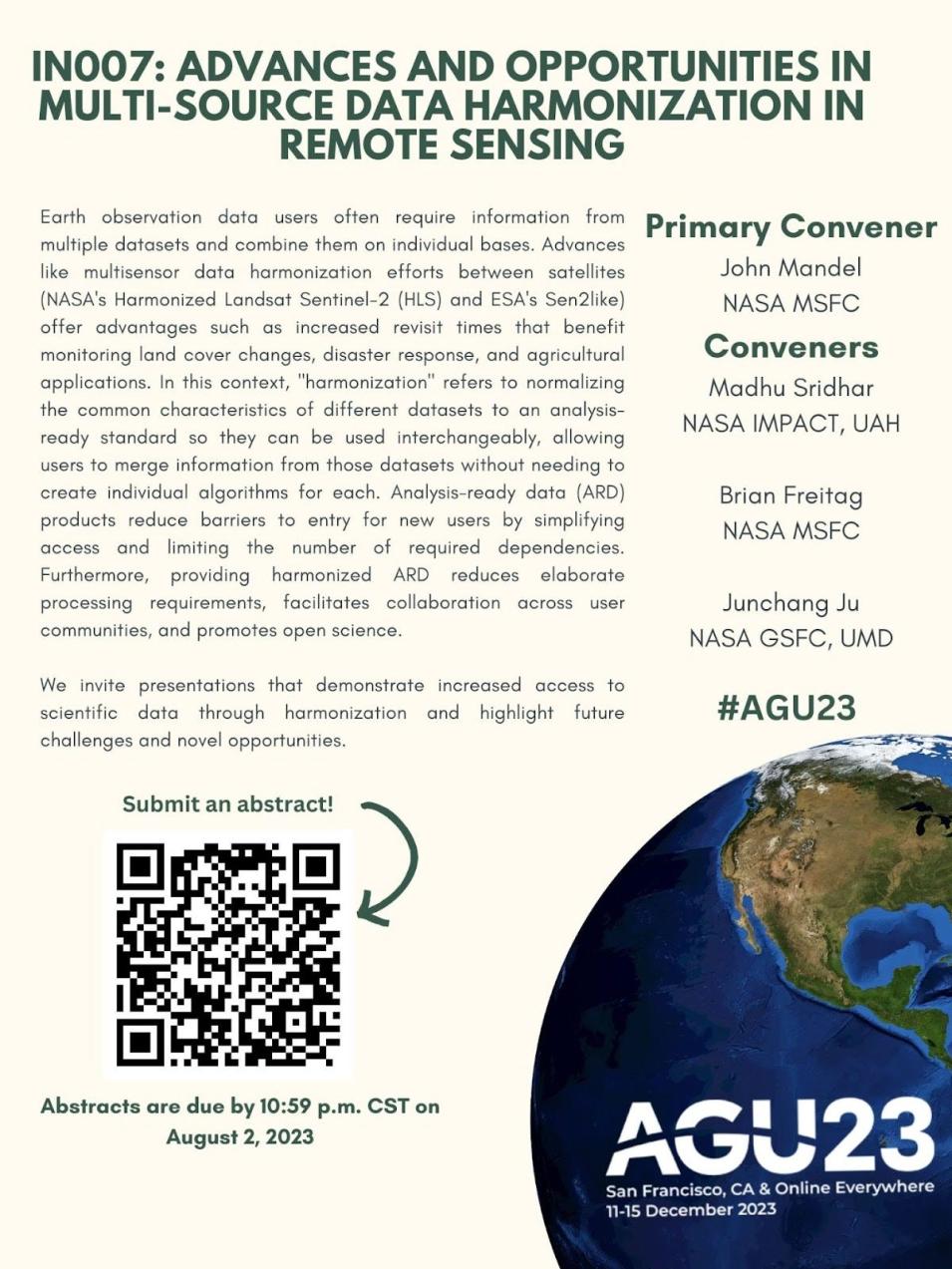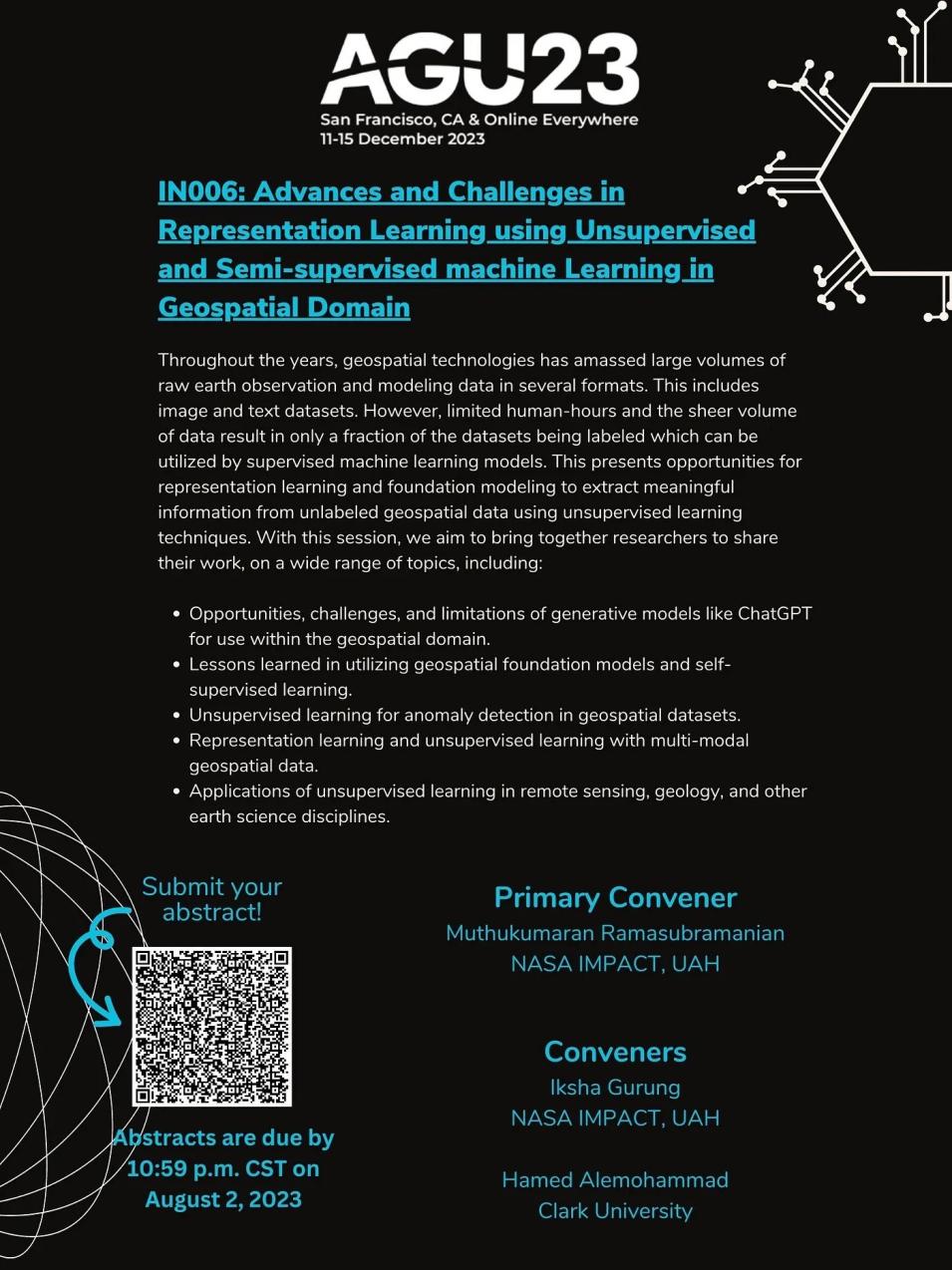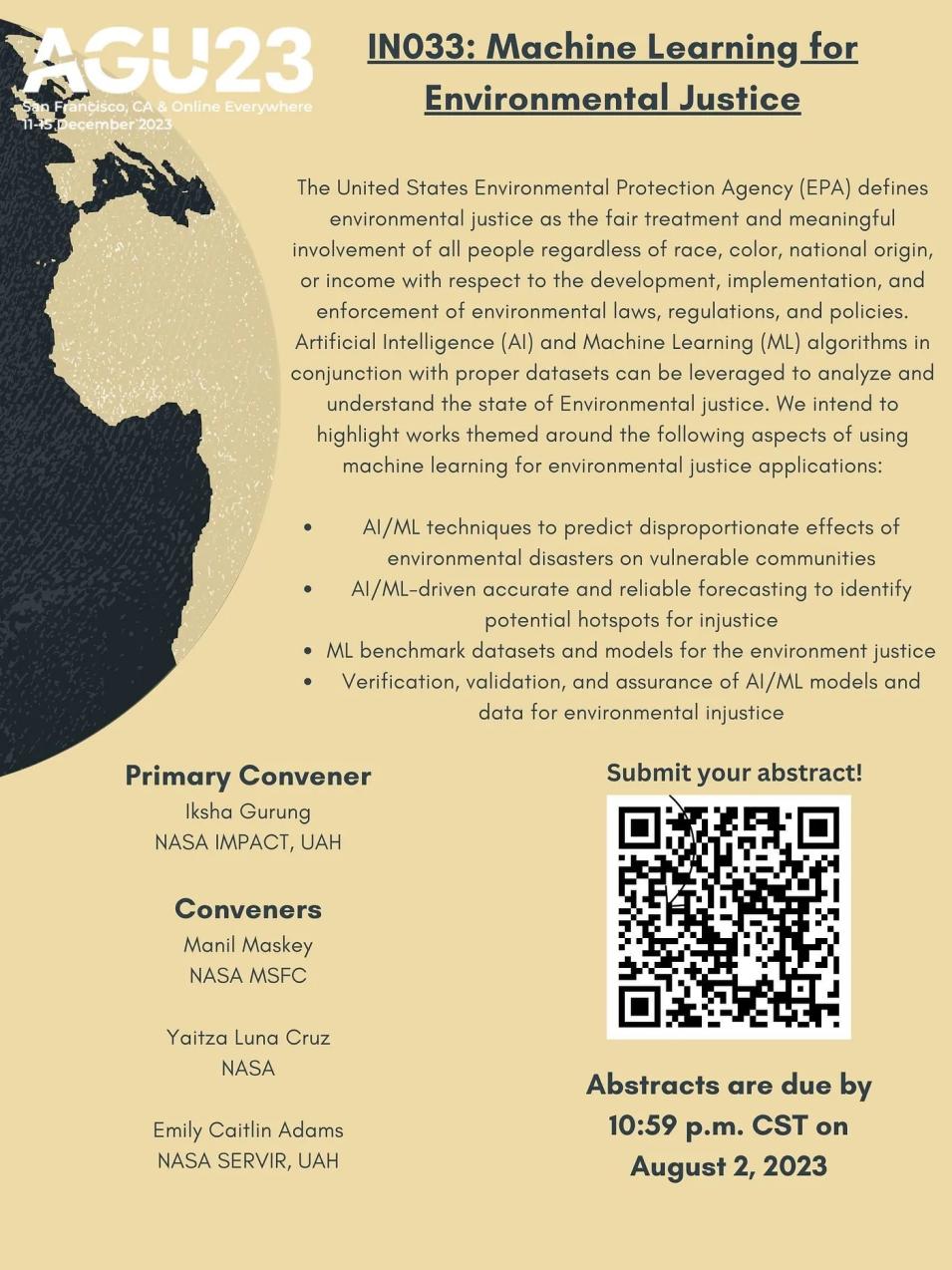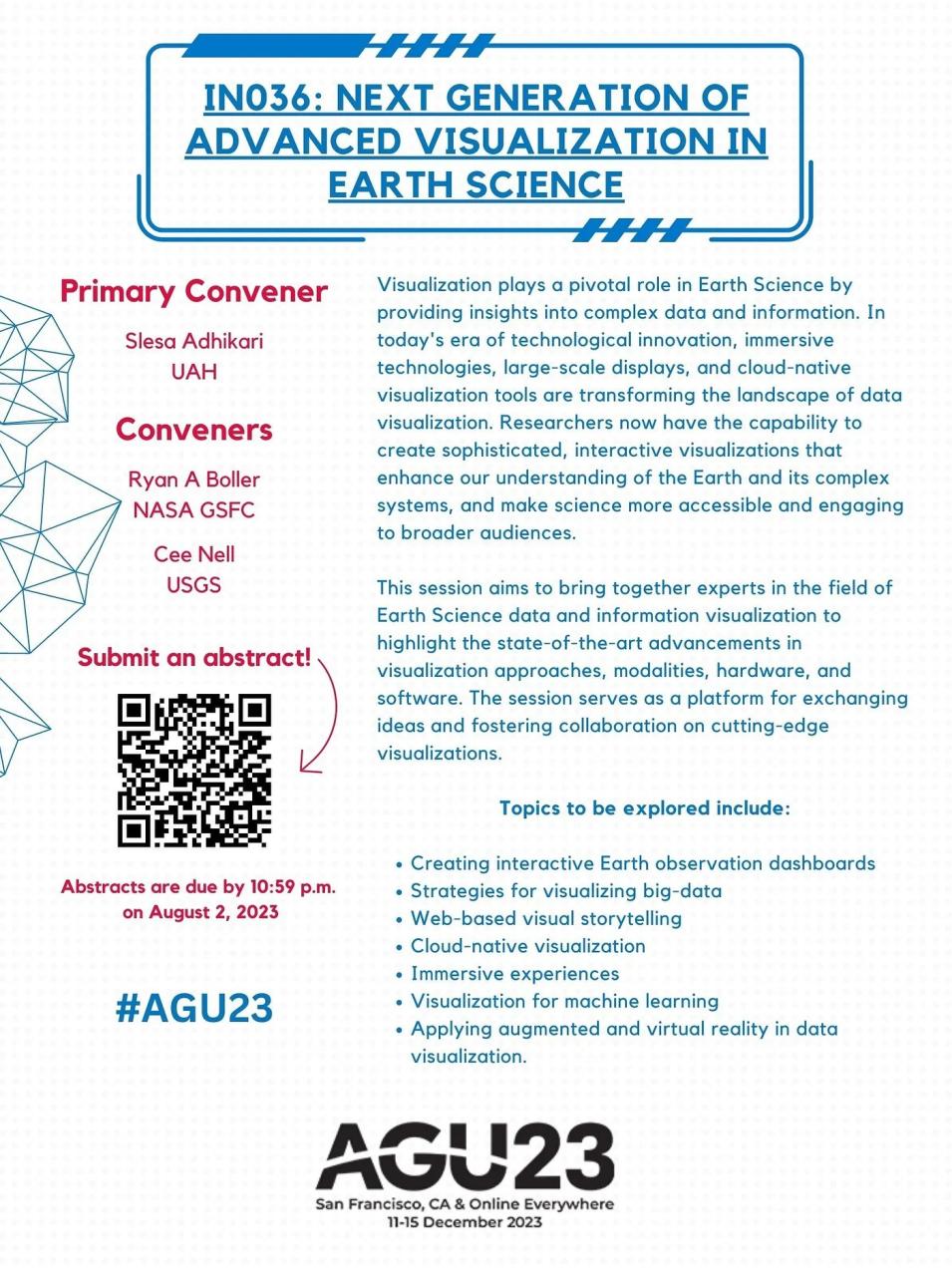IMPACT team members John Mandel, Muthukumaran Ramasubramanian, Iksha Gurung, and Slesa Adhikari will be convening sessions at the American Geophysical Union (AGU) 2023 conference in San Francisco, CA. All four sessions are seeking relevant abstract submissions. The AGU abstract due date is August 2, 2023 at 10:59 CST. Further details, as well as links to the sessions, are shown below.
IN007: Advances and Opportunities in Multi-Source Data Harmonization in Remote Sensing



